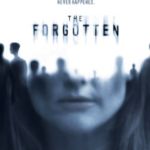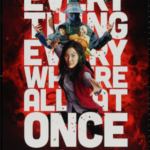The Truman Show (1998)
“Those who are capable of tyranny are capable of perjury to sustain it.” So wrote the 19th-century American political philosopher, legal scholar and businessman Lysander Spooner. Being of a classical libertarian bent, he was thinking of governments, but these lines of his apply also to the premise of this film.
The premise is that one Truman Burbank (Jim Carrey), star of a long-running, wildly popular Hollywood TV reality show, doesn’t know he’s a star and doesn’t even know he’s in a TV show. He thinks he’s living life like everyone else when in fact all those around him are actors and actresses, and Seahaven Island, the small town he’s in, is the world’s largest stage set – so gargantuan that it has its own lake, forest, sky, and artificial weather. Not only that, but 5,000 microscopic TV cameras have been filming Truman’s every move, 24/7, ever since he was born.
In the film, “The Truman Show” is the ultimate soap opera, and audiences have been eating it up for decades, watching the entire life of a person unfold before them, day by day. Never mind that the show’s production company went to the lengths of actually adopting infant Truman, who had been, in their words, “an unwanted pregnancy” – did they never hear the word “baby” for a child in the womb? – and that they are committing the tyranny of keeping him unawares in an artificial world and deceiving him about his very existence. Lysander Spooner would not approve.
The film opens with the TV show’s amoral mastermind, Christof (Ed Harris), and some of the characters making their excuses for why what they are doing to Truman is all right. One claims, tellingly, “Nothing is fake; it’s merely controlled.”

Truman is 30, an insurance agent, and married to Meryl (Laura Linney), a stereotypical 1950s-type chipper wife who delights in showing Truman the latest household gadgets she’s brought home (we learn later that this is product placement meant for the TV show’s malleable audience).

Incidentally, that Truman thinks he’s married to the character Meryl should be problematic to the TV show’s audience, and to us as we watch the movie about the show, because it can only mean that as an actress, she must have to prostitute herself with him to play her role of a wife.
We can ask ourselves, why do the TV show’s audiences not object to this, and to the cruelty of an entire cast and crew taking advantage of a fellow human being? Those watching the TV show and giving it sky-high ratings are cruel, too, and part of the problem; they don’t protest it and boycott it, after all.
We gradually learn that all is not perfect for Truman in his seemingly pleasant world. We begin to intuit that sometimes he is pretending – he is faking cheeriness. He wants to travel, but he can’t because of a terror of water that the show’s producers instilled in him in his childhood by having him witness his “dad” drown in a boating accident. And he pines for Sylvia (Natascha McElhone), a girl who liked him in college and was the one he really wanted to marry.
Back then, Sylvia had stepped out of her role as an actress and told Truman that everything was fake and he was living in a set. That only confused him, because an actor identifying himself as Sylvia’s dad showed up, said Sylvia was delusional and told Truman they were going to “move to Fiji.” Fired from the show, Sylvia started a “Free Truman” movement on the outside.

On Day 10,909 of Truman’s life, an anomalous accident on the set makes him start to wonder a bit. Similar incidents heighten his suspicions, and before long he realizes something’s drastically wrong. Soon he notices in a wedding photo that Meryl crossed her fingers during the ceremony. He tries to escape Seahaven and flees through the woods, but goons stop him. He confides in Marlon, his best friend (Noah Emmerich), who lies to him by saying, “The last thing I’d ever do is lie to you.”
Truman now rises to greatness by conquering his fear of water and escaping across the lake in a sailboat. Christof, watching this, creates a storm that nearly drowns Truman. But he relents when Truman struggles back onto his craft. Truman shouts to his unseen nemesis, “Is that the best you can do? You’re going to have to kill me.”
The boat finally crashes into a wall painted as sky – the edge of the giant set. Instead of despairing, Truman finds an exit door. Calling Truman’s name, Christof speaks to him for the first time, saying, “I’m the creator.” Truman asks, “Was nothing real?” and Christof replies that there is no more truth on the outside than there is inside the set. Christof wants Truman to stay on the show but has opened the exit door.
Truman decides to leave, signing off with his catchphrase, “Good afternoon, good evening, and good night.” Audiences everywhere finally do the right thing and cheer his making it to freedom. Sylvia, watching at home nearby, is exultant and rushes out the door to find him. The film closes by showing two now-bored viewers who ask, “What else is on?” and start looking for a new program to replace “The Truman Show.”
The movie makes a Hollywood studio the villain, but the evils it depicts mirror those of a totalitarian state: a walled-off society; psychological manipulation of the citizens, who must hide their true thoughts; and armed thugs who keep freedom-seekers from leaving – in other words, every Communist regime, present and past.
The film has a mixed message about babies. To keep Truman from “going off the reservation” (pun intended), Meryl tells him she thought they “were going to try for a baby,” and he replies merely that they can do that later. But later, a montage of images from Truman’s childhood begins with a photo of him as a very young preborn baby. How many other movies ever picture their hero as an infant in the womb? Adding to that life-affirming message is that the sail number on Truman’s boat is 139. Psalm 139 is known as “the pro-life psalm” because of its verse 13: “You formed my inmost being; you knit me in my mother’s womb.” (NAB) The psalm’s verses 9-10 could serve as Truman’s motto as he seeks a new world: “If I take the wings of dawn and dwell beyond the sea, even there your hand guides me, your right hand holds me fast.”

Truman’s boat’s name is also evocative: Santa Maria, the name of Columbus’s flagship. In his courageous quest, Truman is like “the brave Admiral” in Joaquin Miller’s 1913 poem, “Columbus”: “He gained a world; he gave that world / Its grandest lesson: ‘On! sail on!’”

Peter Weir directed this film. Andrew Niccol, who wrote the script, also wrote and directed Gattaca (1997), another dystopian film about a hero who uses subterfuge to triumph over an authoritarian state. Truman is rated PG “for thematic elements and mild language.”
Let old Lysander Spooner have the final word – about every human being, and here, about our hero Truman: “A man’s natural rights are his own, against the whole world; and any infringement of them is equally a crime, whether committed by one man, or by millions…”
— Dan Engler













